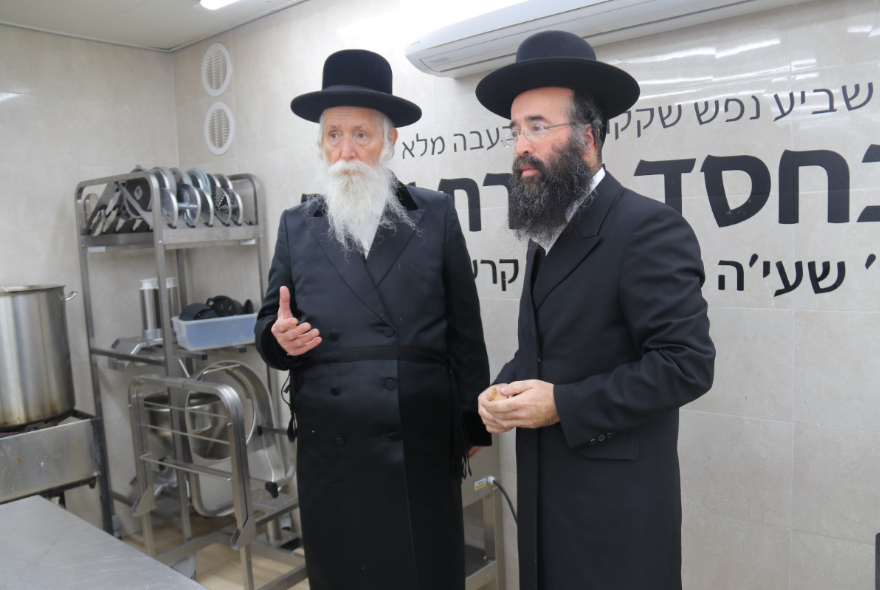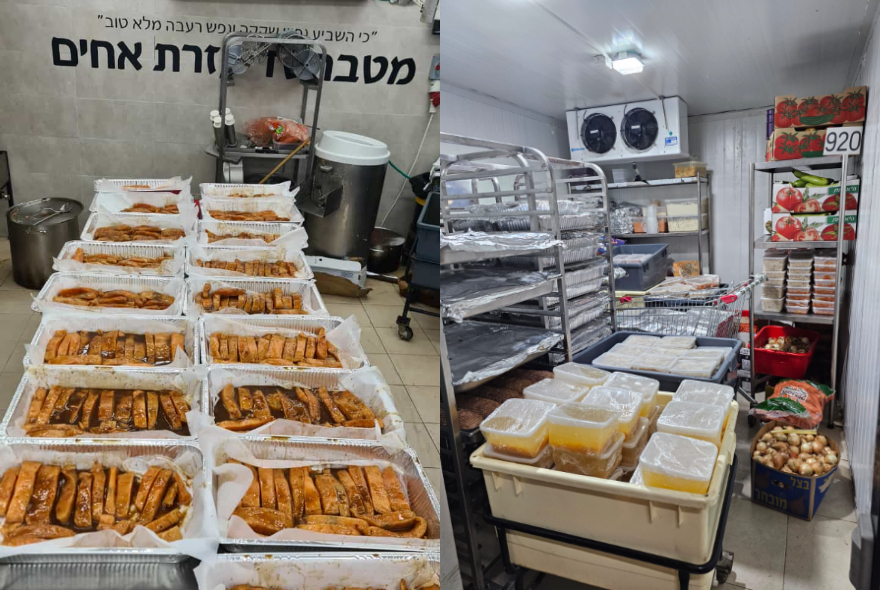
The Beit Shemesh charity organization is currently in the midst of a feverish activity in preparation for Passover - centered on full organization for the start of the massive cooking operation, in preparation for the holiday and Shabbat.
Alongside these, a parallel fundraising effort is of course underway to finance the operation, so that the organization can indeed provide cooked food portions to all families who need it, due to dealing with an illness, prolonged hospitalization, or a complex medical condition.
In recent days, a train of supply trucks has been observed arriving at the huge kitchen, with the trucks unloading, one after another, pallets loaded with raw materials for preparing the meals: canned goods, frozen foods, meat, fish, poultry, vegetables, potatoes, spices, potato flour, ground nuts and almonds, nut oil, olive oil, and more and more equipment for preparing kosher cooked meals for Passover, in the utmost elegance.
Rabbi Avraham Kap says: "The second we finished cooking for Shabbat Vayikra, a team of veteran volunteers, those we trust, entered the kitchen along with the supervisors, and immediately began the work of cleaning and scrubbing, very sharp materials and advanced tools. This is an industrial kitchen and all its training is a complex business. Some of the equipment is fixed to the floor all year round, and now we simply remove the screws and put the dishes in the chametz storage, when special equipment arrives for Passover."
"At the same time, we prepared work surfaces, with a grinder, a grinder, an anvil, everything that is needed according to the instructions of those who supervise each tool according to the type of tool and the nature of the work being performed with it."
"At the same time, we stored huge quantities of poultry, fish, beef, eggs, and more in warehouses and in the cold and freezer rooms, and as soon as the kitchen training was completed, we began cooking in a Passover format. Families will continue to receive cooked food in the week before Passover, but it will be kosher food for Passover. Leaven is off the menu until after Passover is over and we finish packing the last of the Passover dishes, only then will we be able to return to cooking leaven in the kitchen."
"This is not an easy project," explains Rabbi Kap, "especially since this time we have a Shabbat and a holiday next to each other. It's never easy when a holiday and a Shabbat are next to each other, but we will deal with it. We already have a lot of experience and we have always met our goals with great divine help that accompanies us at all times."

Rabbi Kap is also working on raising funds to finance the food for the holiday meals: "This is not an easy project. The cost of living is hitting everywhere, our expenses have increased greatly, and the donors - the general public - are also dealing with the rising prices of food and clothing, so it is more difficult for people to set aside their money and donate to others."
"Here too, we see the warm hearts of the residents of Beit Shemesh. People spread out their bread baskets so that even families dealing with illness, God forbid, will have cooked food for the holiday meals. Especially on Passover and even more so on the night of the Seder, when we open and say, 'All that is necessary shall come and pass,' and there is a halachic obligation to give the poor money or food for the needs of the holiday."
"Gentlemen, this is not a joke. I recommend to anyone who really cares to know, to open the passage from the Holy Zohar that is said at the Shabbat morning meal, what is written there regarding the absolute obligation to give to the poor on the holiday. The Holy Zohar writes there that giving on the Shabbat is a great mitzvah but not an obligation, while giving on the holiday is a real obligation, and whoever does not give of his own to the poor on the holiday, it is very serious and it also mentions the consequences and so on.
"But more than anything, it's important for the children's education. They need to see and know that their parents are giving to others, believe me, your donations go directly to the families' homes. After all, we have a budget framework, we cannot exceed it because the organization will not be able to survive if we exceed it. For every additional donation that comes in, approval is received to add another family to the list of eligible families. Every Jew who donates to this cause literally gets to feed hungry Jews in the midst of Passover. This year, on Seder night, you can say with all your heart, "Kol Dachfin Yityi Yiva Pesach," because this year you will really get to feed the hungry on Seder night, in the hope that we will be able to eat from the Passover and from the sacrifices in Jerusalem, the Holy City, this year."